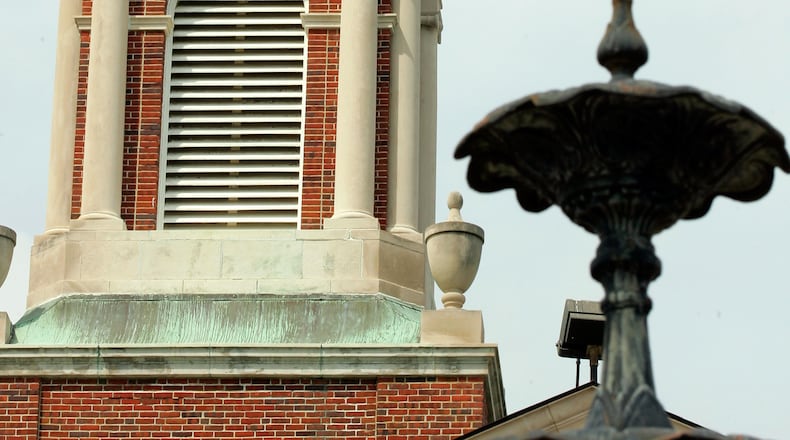There are no clinics or providers that perform induced abortions in Lebanon or in Warren County.
According to Sanctuary Cities for the Unborn, there are none in Ohio and Lebanon would be the first. Cities in Texas and Nebraska have passed similar ordinances, according to the organization’s website.
The emergency ordinance takes effect upon passage. It also would make several provisions and findings concerning abortion.
According to the proposed emergency ordinance, the ordinance is legal because abortions may be legally obtained within a reasonable distance from Lebanon in Cincinnati and in Kettering so that any woman may obtain an abortion to exercise that right outside the city limits.
The ordinance also includes language stating it is the city’s position that human life begins at conception; that abortion is a murderous act of violence that purposefully and knowingly terminates an unborn human beings prohibit violence against other human beings. The ordinance states that the (U.S.) Supreme Court’s decision in Roe v. Wade, is a lawless and unconstitutional act of judicial usurpation, as there is no language in the Constitution about abortions.
The ordinance also states that Ohio’s Human Rights and Heartbeat Protection Act has outlawed and criminalized abortion statewide if the unborn child has a detectable heartbeat. The only exception is for abortions needed to prevent the death of the pregnant woman or to prevent a serious risk of the substantial and irreversible impairment of a major bodily function.
That bill passed in 2019 but U.S. District Judge Michael Barrett has ruled that enforcement of the law may not begin as lawsuits against it have been filed by Planned Parenthood and abortion clinics represented by the American Civil Liberties Union.
Mayor Amy Brewer said she and other council members have already heard from residents concerning the proposed ordinance. Brewer said the proposed ordinance does not prevent a woman from getting an abortion or getting the healthcare she chooses.
“We’re being proactive in saying we don’t want a (abortion) facility in Lebanon,” she said. “It’s about preventing abortion clinics and hospitals from performing the procedure in Lebanon in the future.”
Councilman Doug Shope was unavailable for comment on the proposed legislation. The proposed legislation was discussed during a work session last week.
According to the Ohio Department of Health, there were 180 Warren County residents who had an induced abortion in 2019. Of that total for 2019, 30 women lived in the 45036 ZIP code, which is mostly Lebanon. That number has fallen over the last decade, down from 244 in 2009.
“Cincinnati Right to Life applauds the work of the pro-life community in Lebanon to drive the effort of establishing a Sanctuary City for the Unborn,” said Meg DeBlase, executive director of Greater Cincinnati Right to Life. “In America we are guaranteed the right to life. We expect government leaders to defend that right above all others, especially for vulnerable populations like the unborn. We pray that the city council members and mayor of Lebanon have the courage to stand up for unborn lives in their community. .”
“Efforts to control Ohioan’s bodily autonomy are and will always be a threat to the health and safety of those living in our state,” said Kersha Deibel, president & CEO of Planned Parenthood of Southwest Ohio. “The ordinance in Lebanon is just another example of the extreme and unconstitutional lengths anti-abortion activists will go to prevent patients from seeking the care they need and deserve. These types of ordinances attempt to criminalize and defame abortion providers and/or prevent health centers that provide abortions from operating within their city limits and we will not stand for it.”
About the Author

